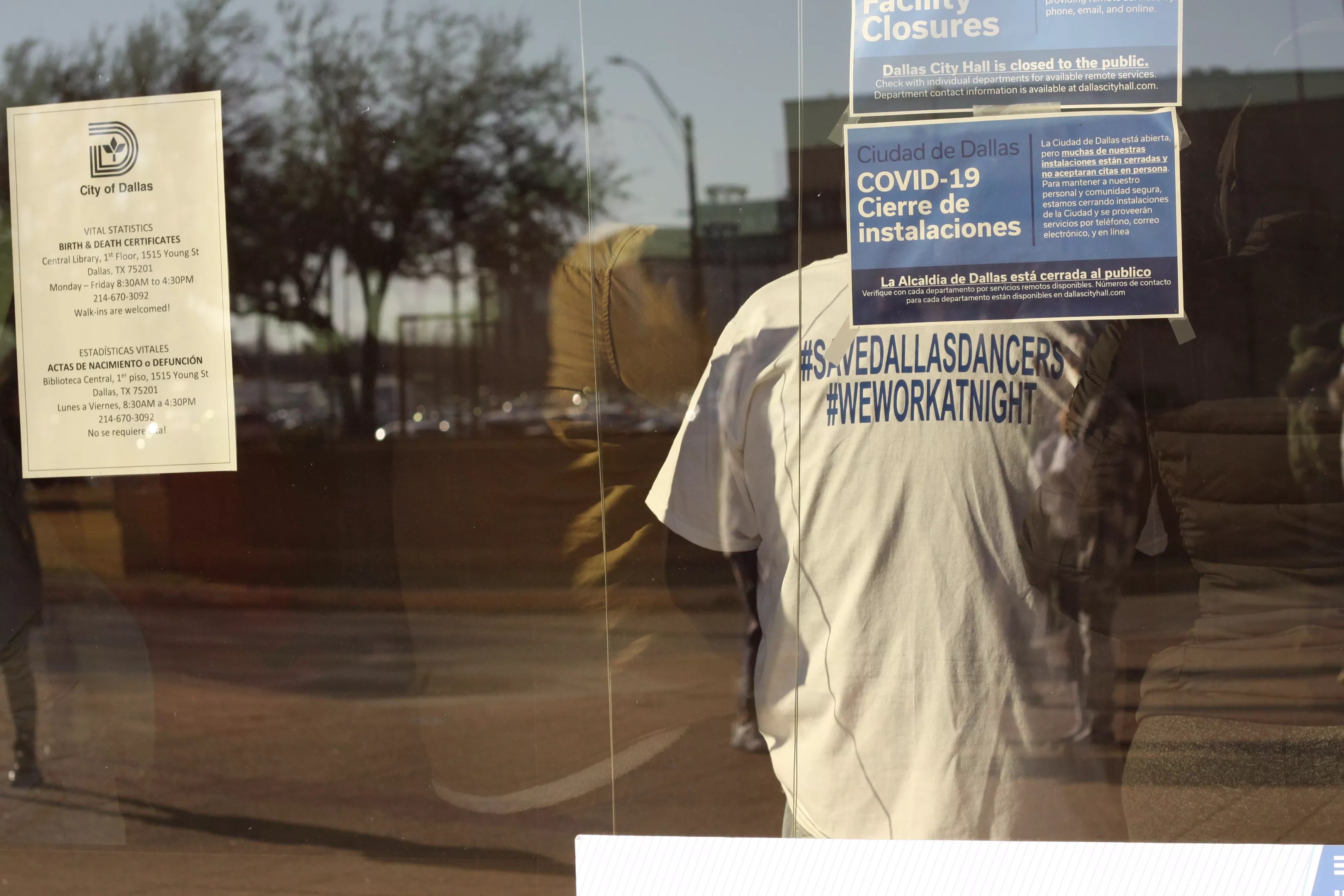
Jacob Vaughn

Audio By Carbonatix
Last month, U.S. Chief District Judge Barbara Lynn essentially told the city it didn’t have the facts to back up the reasoning behind new hours of operation for sexually oriented businesses. But Dallas isn’t backing down yet. The city attorney’s office filed a notice of appeal this week.
A group of sexually oriented businesses sued Dallas after it approved an ordinance that would require the businesses to close between 2 a.m. and 6 a.m. City Council members and the Dallas Police Department said crime is higher around these businesses during the early morning hours. The businesses are a drain on public safety resources during these time frames, the city argues.
City officials worked on an ordinance to close the clubs down during what they claimed were crime-ridden hours in Dallas. Along the way, the businesses said they would sue on the grounds that such an ordinance exclusively targeting them was violation of their First Amendment rights. After the ordinance was unanimously approved, the clubs did just that.
After months of hearings and consideration by Lynn, the sexually oriented businesses were told in late May that they could stay open. Lynn said the police data used to justify the ordinance was flawed. Because of this, she granted the sexually oriented businesses a temporary restraining order against the enforcement of the ordinance.
Dallas, make your New Year’s Resolution Count!
We’re $10,000 away from reaching our $30,000 year-end fundraising goal. Your support could be what pushes us over the top. If our work has kept you informed, helped you understand a complex issue, or better connected you to your community, please consider making a contribution today.
“With recent events, it’s even more evident now than ever that crime will happen at any time of day and in any settings.” – Avi Colunga, adult entertainer
Roger Albright, one of the attorneys representing the businesses, said in an emailed statement that Lynn’s opinion on the ordinance was “extremely well-reasoned and persuasive with a meticulous and thorough exposition of the evidence, the facts and the law.”
The city evidently didn’t agree and filed a notice of appeal this week.
Avi Colunga, 25, has worked as an entertainer at XTC Cabaret in Dallas since 2018. The legal back and forth between the city and the businesses has left Colunga feeling in limbo. She thinks the industry is under attack.
She hopes the legal saga ends in the businesses’ favor, but she’s not waiting to see if that will happen before securing another source of income. Like City Council members told others in the industry to do before approving the new hours, Colunga is looking for new work. “With the back and forth, it’s better for my anxiety to accept the worst possible outcome and prepare for it,” Colunga said. She’s turning to bar management and bartending, “the next best option,” according to her.
Working at a sexually oriented business though, has allowed Colunga to make a living and have a life with her daughter. At XTC, she could work three nights a week and spend the rest of her days with her child, who is just over a year old.
The city’s ordinance won’t prevent crime, she said. It will just make things harder for people in the industry. “With recent events, it’s even more evident now than ever that crime will happen at any time of day and in any settings,” Colunga said.
She cited recent parties and other events in Dallas that have ended in fatal gun fire. “That should be proof right there that crime is always going to exist, whether it is at a [sexually] oriented business or at a family BBQ,” she said. To her, sexually oriented businesses are being used as the scapegoat for larger problems.
“I truly believe that pushing this agenda that these types of businesses are responsible for crime rates is a scapegoat for lawmakers, allowing them to not face the fact that there are bigger problems out there than cutting a business’ hours short by three hours,” Colunga said. “Those three hours will not make a single difference for crime but certainly will for us workers who depend on those three hours to earn our living.”